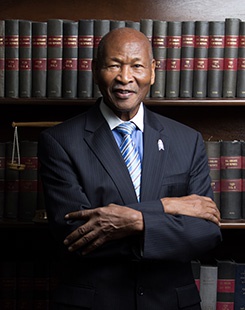The recent suspension of Ghana’s Chief Justice, Her Ladyship Justice Gertrude Araba Esaaba Sackey Torkornoo, continues to stir national controversy, as prominent legal figures warn of far-reaching consequences for the country’s democracy and international reputation.
President John Dramani Mahama, acting in accordance with Article 146(6) of the Constitution and following the advice of the Council of State, suspended the Chief Justice on Tuesday, April 22, after determining that a prima facie case had been established in three petitions filed against her. The decision has triggered sharp backlash from legal experts and former officials.
Former Council of State member and respected lawyer, Sam Okudzeto Ablakwa, expressed deep concern over the international ramifications of the move, cautioning that such actions could undermine investor confidence in Ghana’s judicial stability.
“When you suspend a Chief Justice, the signal that it sends out into the international community is quite serious indeed,” Okudzeto stated. “I can assure you that a lot of investors will withhold their investments from your country by virtue of that kind of situation.”
Echoing similar sentiments, former Deputy Attorney-General, Alfred Tua Yeboah, criticised the advice issued by the Council of State as “acidic and poisonous,” warning that it could destabilize judicial independence and Ghana’s democratic framework.
“If you take the Chief Justice out and you want to advise for her suspension, the Council of State needs to tread cautiously,” he said in an interview with Citi FM. “The decision of the Council of State is very acidic, very poisonous. And it has future consequences which are so dire when it comes to Ghana’s democracy.”
Tuah-Yeboah emphasized that while the Constitution mandates the Council to advise the President, the advice is not binding. “The buck stops with the President,” he said, urging for more judicious use of executive discretion.
Adding to the chorus of criticism, private legal practitioner Austin Brako-Powers described the suspension as a “needless spectacle” designed to appease the ruling party’s grassroots supporters rather than uphold judicial integrity.
Meanwhile, a statement from the Office of the President explained that the suspension was in line with Article 146(10) of the Constitution and was executed “in accordance with the advice of the Council of State… pending the outcome of the committee’s proceedings.”
Despite this constitutional backing, the decision has ignited widespread debate about the separation of powers, with several stakeholders warning against what they see as an erosion of judicial independence.

